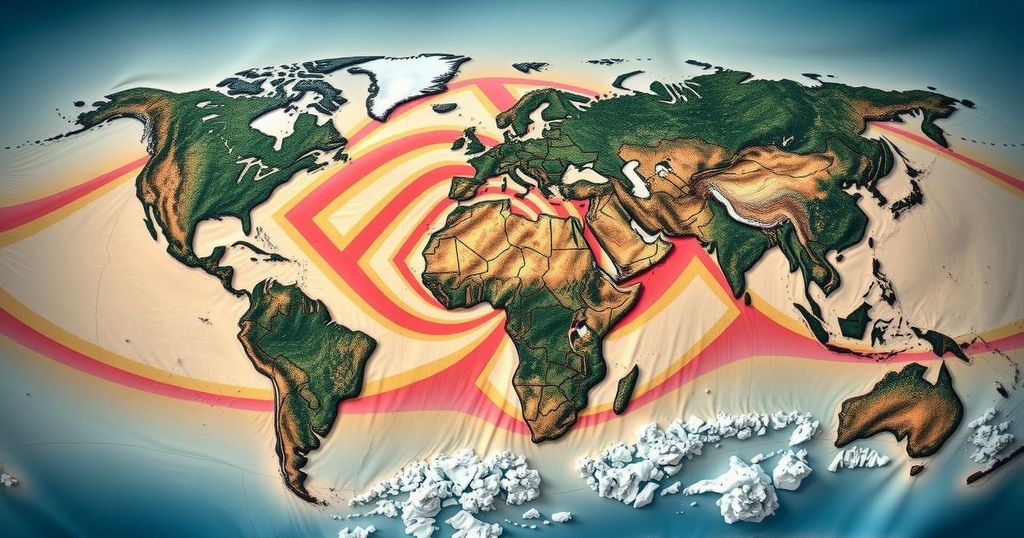Is Climate Change Increasing Earthquake Frequency? A Look at Recent Findings

A recent study indicates a potential link between climate change and increased earthquake frequency, particularly highlighted by a recent 7.3 magnitude quake in Vanuatu. Research suggests that melting glaciers may alter pressure on tectonic faults, leading to more frequent seismic activity, raising concerns about the increasing impact of climate change on geological stability.
A recent study has raised the question of whether climate change is influencing the frequency of earthquakes. Just days ago, a significant magnitude 7.3 earthquake struck off the coast of Vanuatu, claiming lives and injuring many. While Vanuatu is known for its seismic activity due to its location on the Pacific Ring of Fire, researchers suggest that climate change may be exacerbating these geological events. A study from Colorado State University indicates that as glaciers melt, the stresses on tectonic faults may be altered, leading to increased seismic activity in affected areas. This could signify a broader trend, necessitating careful monitoring and understanding of the links between climate change and geological stability.
Earthquakes are a regular occurrence in regions like Vanuatu, which lies on the Pacific Ring of Fire, a zone characterized by frequent seismic and volcanic activity. The question of whether climate change could be linked to seismic events is increasingly pertinent, given the observed acceleration of climate change impacts globally. Recent research has begun to establish connections between glacial melting and increased fault movement, suggesting that climatic shifts can significantly influence geological processes, particularly in active tectonic regions such as the Sangre de Cristo Mountains.
The research indicates a worrying trend where climate change may increase the frequency of seismic events, as evidenced by the link between glacial retreat and fault movements. As climate change progresses at an unprecedented rate, it is imperative for nations, especially those in vulnerable regions like Vanuatu, to heed these findings. Understanding the interplay between climate dynamics and geological risks is critical for effective hazard assessment and disaster preparedness.
Original Source: www.euronews.com






